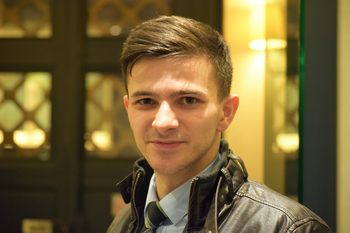Have you ever wondered why you are most expressive when singing to yourself? You hit all the notes and even add some dance moves. But, as soon as you try singing in front of an audience, you start to clench up. Put simply, many of us sing better when we know nobody is watching. Why is that?
For some people, it's more than just stage fright. Stage fright can be overcome, but a lack of confidence can be somewhat harder to do. When you are alone, there is no chance of nerves, wobbly legs, pounding heart rate, or sweaty palms...but in front of people it just won't come together.
Nerves can be the end of a singer. The good news, however, is that it's normal for most of us. Most people have a fear of performing, and more importantly, the fear of failure in front of people. Fortunately, anyone can learn to build confidence, and this article will show you how.
How To Build Confidence
It is important to point out that confidence is not a static state of mind. It can increase and decrease any time. Several factors are responsible for this including self-esteem, technical ability, and level of preparedness.
How well you measure up for these and other factors ultimately determines how confident you will be when singing. Let’s discuss a few important tips.
Pick a genre
Being versatile is a good skill to have for a singer. But it takes a great deal of experience and skill to change between genres with ease.
Decide what music genre is right for your type of voice. This helps you build confidence in your abilities as a singer too.
No substitute for experience
Beginner singers have no experience to call on and often have yet to refine their skills. Before you can be confident shuffling between genres, pick a genre you enjoy and, more importantly, one suited to your voice.
Build it up by going on fun karaoke outings at local cafes. Choose songs you are familiar with and try to get your audience to sing along and have fun with you. To deal with those initial nerves, you can also try singing as part of an ensemble with friends or family. You will soon build confidence to sing on your own.
Training
Knowing you have something - technical skill - will give you confidence to stand before any crowd and sing. Proper training gives you authority over your subject - the song. It gives you confidence to tell yourself, “I got this,” even when you feel nerves starting to creep in. Chances are you may benefit from taking lessons if you want to build your confidence.
Practice
You will not necessarily sound perfect, but regular practice will help you improve your singing skills. Often what drains confidence is the fear of making mistakes and being exposed as incompetent.
You need to have complete reign over your voice and the songs you sing and all that fear will slowly fade away. Only regular practice can do that for you.
While practice in general is good, practicing in front of people will greatly help with building confidence. Seize every opportunity to sing in front of people, starting with familiar faces like family members, friends, and study mates.
Surround Yourself With Confident People
It's true that confidence is contagious. Being around assertive and confident people will help you develop a positive attitude to life in general. These are people who don’t seem to struggle with confidence, people who don’t obsess over their lack of skill or experience, and who just go on and do things.
Even better are people whose singing abilities you already admire. Look amongst your friends and contemporaries for them. Befriend them if you have to. Their positivity and ‘can do’ approach to life will soon rub off on you.
Becoming Confident on Stage
Confidence can’t really be taught. Rather, it is the culmination of several conscious steps you take to truly master your craft. It is that state of mind that reassures you of your ability. So, take accountability for your own development and know that you are the only person with the keys to unlock the potential that is within you.

About the Author: Brian Collins
I am a classically trained singer who believes that every instrument requires maintenance - including the voice! I started my professional music studies at the age of 8 and competed in and won several local and state piano competitions. I graduated with honors and earned my Bachelor of Music Education in 2003, and since then I have studied with famous musicians and teachers around the world. I have also completed hundreds and hundreds of voice lessons, exploring various methods, and attended countless seminars on voice coaching for all ages.
